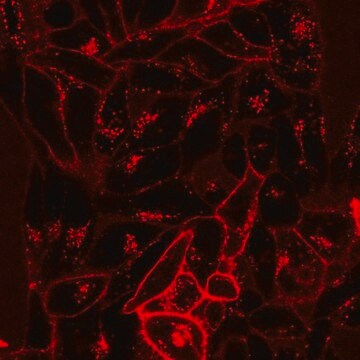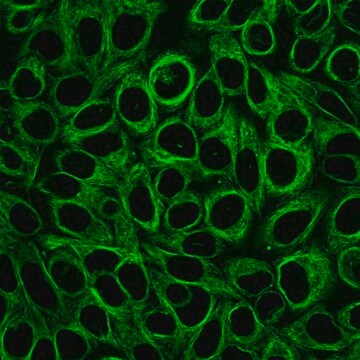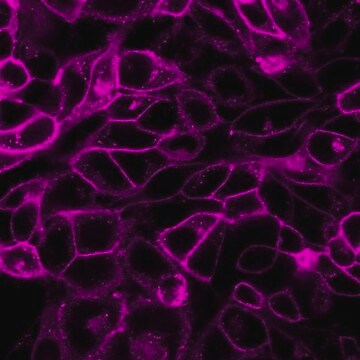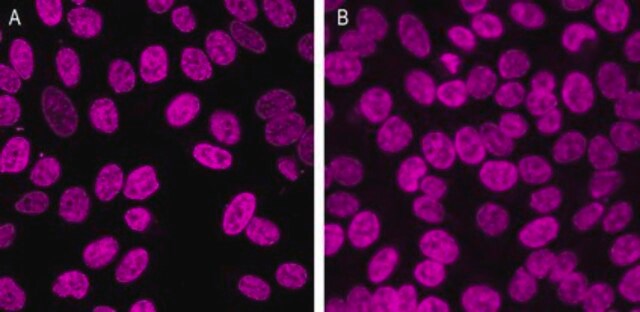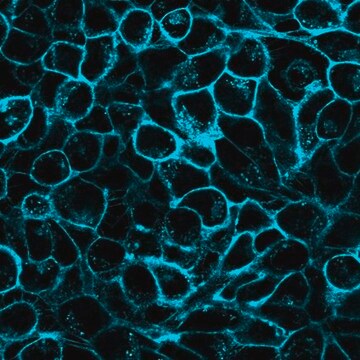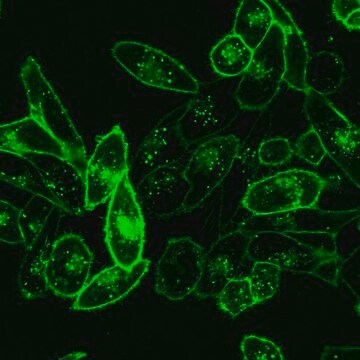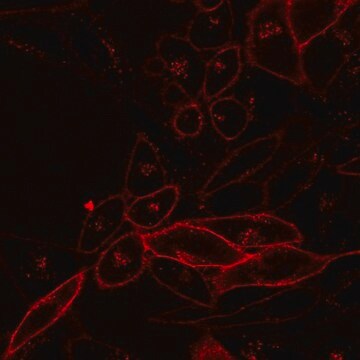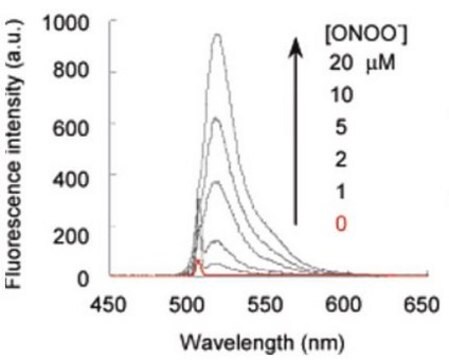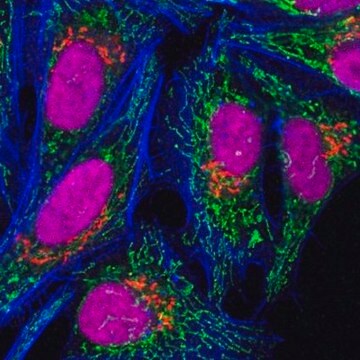SCT115
BioTracker NIR790 Cytoplasmic Membrane Dye
Live cell imaging lipophilic carbocyanine membrane dye suitable for long-term fluorescent cell labeling and cell tracking studies.
Sinônimo(s):
Live cell imaging probe
Faça loginpara ver os preços organizacionais e de contrato
About This Item
Código UNSPSC:
12352207
Produtos recomendados
técnica(s)
cell based assay: suitable
método de detecção
fluorometric
Condições de expedição
ambient
Descrição geral
Lipophilic carbocyanine dyes are widely used for labeling neurons in tissues by retrograde labeling, and to label membranes in a wide variety of cell types. The dyes are weakly fluorescent in aqueous phase, but become highly fluorescent in lipid bilayers. Staining is highly stable with low toxicity and very little dye transfer in between cells, making the dyes suitable for long-term cell labeling and tracking studies. When live cells are stained, the dyes label plasma membranes and also are taken up into endocytic compartments. Cells can be fixed either before or after staining, although permeabilization affects the staining pattern.
Unlike PKH dyes, BioTracker Cytoplasmic Membrane Dyes do not require a complicated hypoosmotic labeling protocol. They are ready-to-use dye delivery solutions that can be added directly to normal culture media to label suspended or adherent cells in culture.
NIR Cytoplasmic Membrane Dyes are novel near-infrared carbocyanine dyes for labeling the cytoplasmic membranes of living cells. Due to their long emission wavelengths, near-infrared cell membrane stains can be used to label cells for near-infrared small animal imaging studies for non-invasive imaging of cell migration and cell homing.
Spectral Properties
Absorbance: 786nm
Emission: 820nm
Unlike PKH dyes, BioTracker Cytoplasmic Membrane Dyes do not require a complicated hypoosmotic labeling protocol. They are ready-to-use dye delivery solutions that can be added directly to normal culture media to label suspended or adherent cells in culture.
NIR Cytoplasmic Membrane Dyes are novel near-infrared carbocyanine dyes for labeling the cytoplasmic membranes of living cells. Due to their long emission wavelengths, near-infrared cell membrane stains can be used to label cells for near-infrared small animal imaging studies for non-invasive imaging of cell migration and cell homing.
Spectral Properties
Absorbance: 786nm
Emission: 820nm
Aplicação
Live cell fluorescent imaging
Live cell imaging lipophilic carbocyanine membrane dye suitable for long-term fluorescent cell labeling and cell tracking studies.
Research Category
Cell Imaging
Cell Imaging
Research Sub Category
Live Cell Dye
Live Cell Dye
Qualidade
Spectral Properties
Absorbance: 786nm
Emission: 820nm
Absorbance: 786nm
Emission: 820nm
forma física
Liquid
Armazenamento e estabilidade
Store BioTracker NIR790 Cytoplasmic Membrane Dye at room temp. Protect From Light.
Note: Centrifuge vial briefly to collect contents at bottom of vial before opening.
Note: Centrifuge vial briefly to collect contents at bottom of vial before opening.
Exoneração de responsabilidade
Unless otherwise stated in our catalog or other company documentation accompanying the product(s), our products are intended for research use only and are not to be used for any other purpose, which includes but is not limited to, unauthorized commercial uses, in vitro diagnostic uses, ex vivo or in vivo therapeutic uses or any type of consumption or application to humans or animals.
Código de classe de armazenamento
10 - Combustible liquids
Classe de risco de água (WGK)
WGK 1
Ponto de fulgor (°F)
188.6 °F - (refers to pure substance)
Ponto de fulgor (°C)
87 °C - (refers to pure substance)
Certificados de análise (COA)
Busque Certificados de análise (COA) digitando o Número do Lote do produto. Os números de lote e remessa podem ser encontrados no rótulo de um produto após a palavra “Lot” ou “Batch”.
Já possui este produto?
Encontre a documentação dos produtos que você adquiriu recentemente na biblioteca de documentos.
Nossa equipe de cientistas tem experiência em todas as áreas de pesquisa, incluindo Life Sciences, ciência de materiais, síntese química, cromatografia, química analítica e muitas outras.
Entre em contato com a assistência técnica